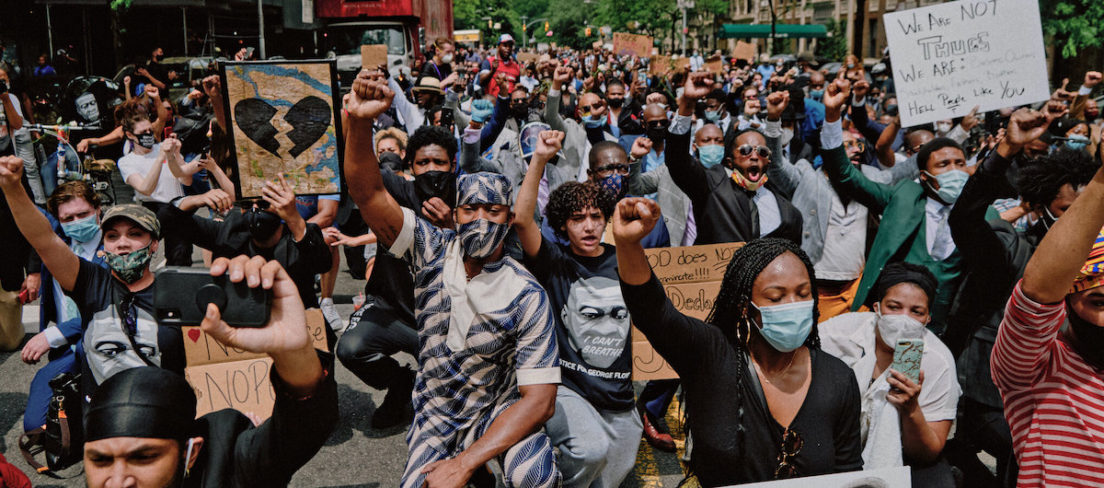Today, on Juneteenth, I’m reflecting on just how much has happened since June 19th, 2020.
In the fight for racial justice, we’ve seen a global reckoning since the murders of George Floyd, Breonna Taylor, and so many others, that has culminated in very public momentum in the movement for Black lives. Earlier this month marked the 100th anniversary of the Tulsa Massacre, an event that has been systematically written out of history books and buried. There’s been growing awareness and activism at every level and in every sector around the systemic anti-Black racism that continues to devastate individuals, families, and communities. We’ve seen the official recognition of Juneteenth as a holiday in many localities, and now even federally.
At Pride Foundation, we’ve made even greater investments in Black-led queer and trans organizations. We’ve deepened our ongoing efforts to acknowledge and address anti-Black racism in our programs, internal culture, and in everything we do—now and historically.
As Juneteenth falls within Pride month every year, we reflect on how inextricably interconnected LGBTQ+ movements and movements for racial justice are. On how our modern LGBTQ+ movement was sparked by the courage, boldness, and brilliance of Black trans women, of Black trans sex workers.
Indeed, so much of the progress we have seen in all movements for justice has stemmed from the leadership and impact of Black people. Whether in the civil rights movement in the 60’s, in the modern Black Lives Matter movement, and in LGBTQ+ movements—our world and our landscape for equity would look very different without the incredible contributions of Black leaders and communities.
And yet, today, as we celebrate the progress of the last year, we must ask: what’s actually changed over the past year?
Juneteenth is ultimately a celebration of freedom. It’s about the critical necessity to build a world where Black people and communities are afforded access to the opportunities to live and thrive. We aren’t there, not nearly. Despite everything that has happened over the past year, the daily lived realities of Black folks have remained the same in so many ways.
Black people continue to die at the hands of police at alarming and devastating rates. Black communities have died of COVID-19 at disproportionate rates, and have been most impacted by the economic and social impacts of the pandemic. In virtually every area of life, Black people, families, and communities continue to face racism at every level, and this is especially true for queer and trans Black folks. 2021 is already on pace to be the deadliest year on record for trans women of color, and most of the trans women and gender diverse people murdered have been Black trans women.
Deeply embedded structural racism—institutions in our country and around the world that have been built on a foundation of racism—makes these outcomes all but inevitable.
Today, all of us at Pride Foundation commit to doing even more to achieve justice—as an organization, as a sector, as a community, as a society—in our programming, with our dollars, in our relationships with supporters and institutional partners.
Every single one of us has a role in building a world where Black people and communities have every opportunity to thrive—a reality where we can truly celebrate the freedom and justice that Juneteenth represents.
Here are just a few ways to commemorate Juneteenth this year:
- For white people and non-Black POC: Celebrate through reparations. Donate to support the efforts of Black-led organizations, shop at Black-owned businesses, and direct your monetary and other resources to Black people and communities however you can.
- Northwest African American Museum (NAAM): Juneteenth Week (calendar of virtual and in-person events)
- Juneteenth Freedom Celebration in Great Falls (outdoor, in-person event)
- Boise Weekly’s Guest Column from Austin Foudy, Director of Community Impact & Outreach at Inclusive Idaho (Pride Foundation community partner): Juneteenth, A Celebration of Freedom
- Meyer Memorial Trust: After Centuries of Extraction and Exclusion, It’s Time to Democratize Funding, Not Just Deploy It (blog)
- Three Dollar Bill Cinema Limited Juneteenth Archival Screening: Daughters of the Dust (film)
- Juneteenth Anchorage (calendar of virtual and in-person events)
Katie Carter is Pride Foundation’s CEO.
